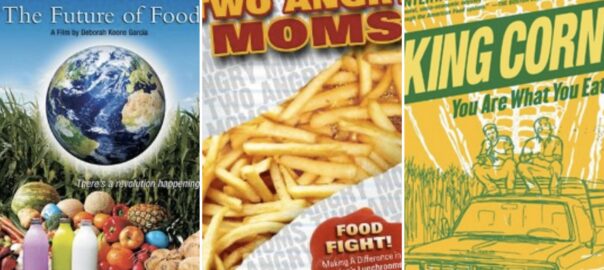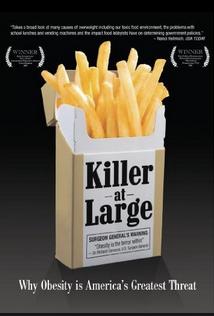Mira Dessy, The Ingredient Guru, offers insightful reviews on several impactful documentaries that explore the intricacies of the food industry, health, and nutrition.
Fresh
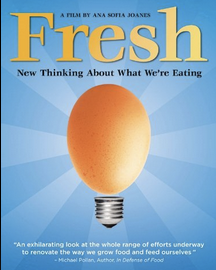 "Fresh" is a powerful documentary that addresses the systemic problems of our industrial food system. Directed by Ana Sofia Joanes, it brings attention to the issues caused by mass production and highlights the efforts of innovative farmers, business owners, and academics striving to create more sustainable and healthier food practices.
"Fresh" is a powerful documentary that addresses the systemic problems of our industrial food system. Directed by Ana Sofia Joanes, it brings attention to the issues caused by mass production and highlights the efforts of innovative farmers, business owners, and academics striving to create more sustainable and healthier food practices.
The film showcases individuals like Joel Salatin, a well-known sustainable farmer, and Will Allen, a former professional basketball player who turned into an urban farming advocate. These pioneers demonstrate alternative farming methods that promote biodiversity and healthier soils, contributing to the long-term health of both the planet and its inhabitants.
The documentary makes a compelling case for supporting local food systems, emphasizing the benefits of organic and sustainable farming. It encourages viewers to rethink their food choices and consider the environmental and health impacts of industrial agriculture.
By showcasing successful models of sustainable farming, "Fresh" inspires hope and action towards a more resilient food system. The film argues that by making conscious food choices and supporting local farmers, consumers can drive significant change in the food industry.
Killer at Large
"Killer at Large" is a chilling exploration of America's obesity epidemic. Directed by Steven Greenstreet, the documentary delves into the multifaceted causes of obesity, from personal lifestyle choices to larger societal and governmental influences. It highlights the alarming statistics and health risks associated with obesity, painting a sobering picture of its impact on individuals and society.
The film critiques the role of the food industry and government policies in perpetuating unhealthy eating habits. It exposes how marketing strategies target children and contribute to poor dietary choices, leading to long-term health consequences. Interviews with health experts, policymakers, and affected individuals provide a comprehensive view of the crisis.
"Killer at Large" also examines the psychological and emotional aspects of obesity, shedding light on how stress, depression, and socioeconomic factors play significant roles in this public health issue. The documentary calls for urgent action from both policymakers and the public to address the root causes of obesity, advocating for better education, healthier food options, and more robust regulatory measures to protect consumers, especially the most vulnerable populations.
Two Angry Moms

"Two Angry Moms" follows the journey of two determined mothers, Amy Kalafa and Susan Rubin, as they fight to improve the quality of food served in American schools. The documentary highlights their grassroots efforts to combat the unhealthy food options that dominate school cafeterias, which are often laden with processed foods and lacking in nutritional value.
The film underscores the importance of healthy eating for children and the long-term benefits of instilling good dietary habits from a young age. It documents the challenges these mothers face in their advocacy, including resistance from school administrations and the entrenched interests of food service companies. Despite these obstacles, Kalafa and Rubin's relentless efforts lead to tangible improvements in some schools, demonstrating the power of community activism.
"Two Angry Moms" serves as a call to action for parents, educators, and policymakers to prioritize children's health by ensuring access to nutritious food in schools. The documentary emphasizes the need for comprehensive food education programs and greater transparency in the food procurement process. It encourages viewers to get involved in their local communities to advocate for healthier school meals and better food policies.
Super Size Me

Morgan Spurlock's "Super Size Me" is a groundbreaking documentary that examines the effects of fast food on health. In a month-long experiment, Spurlock eats only McDonald's food, consuming three meals a day exclusively from the fast food chain. The film documents the drastic changes in his physical and mental health, providing a stark illustration of the dangers of a fast food diet.
Throughout the experiment, Spurlock experiences significant weight gain, increased cholesterol levels, mood swings, and other health issues. His journey is monitored by doctors, who express growing concern over his deteriorating health. The documentary also includes interviews with nutrition experts, doctors, and ordinary people, highlighting the broader impact of fast food culture on public health.
"Super Size Me" critiques the fast food industry's role in promoting unhealthy eating habits and questions the ethics of marketing practices targeting children and low-income communities. The film's shocking revelations sparked widespread discussions about the fast food industry's responsibility and led to changes in some fast food chains' menu offerings and marketing strategies.
The Future of Food
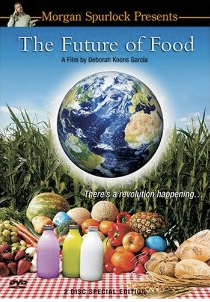
Directed by Deborah Koons Garcia, "The Future of Food" delves into the controversial world of genetically modified organisms (GMOs) and their impact on agriculture, health, and the environment. The documentary provides a thorough examination of the scientific, legal, and ethical issues surrounding GMOs, highlighting the lack of transparency and regulation in the biotech industry.
The film explores the potential health risks associated with GMO consumption and the environmental consequences of widespread GMO cultivation. It features interviews with farmers, scientists, and activists who raise concerns about the dominance of biotech companies like Monsanto and the patenting of life forms. The documentary also discusses the implications of GMOs for food sovereignty and the rights of farmers.
"The Future of Food" calls for greater consumer awareness and advocacy for labeling laws that would allow people to make informed choices about the foods they eat. It urges viewers to consider the long-term impacts of GMOs on health and the environment and to support sustainable and organic farming practices.
Seeds of Hunger
"Seeds of Hunger" examines the global food crisis, focusing on the root causes of food scarcity and malnutrition. The documentary provides a comprehensive overview of the factors contributing to the crisis, including climate change, economic policies, and the globalized food system.
The film highlights the interconnectedness of global food systems and the vulnerabilities that arise from dependence on monoculture and industrial agriculture. It features interviews with farmers, experts, and activists who discuss the need for more resilient and sustainable food systems. The documentary emphasizes the importance of food sovereignty and the rights of small-scale farmers to access land, resources, and markets.
"Seeds of Hunger" also addresses the role of international organizations and governments in addressing the food crisis, calling for more equitable and sustainable policies. It encourages viewers to think critically about their food choices and to support initiatives that promote food security and sustainability.
King Corn
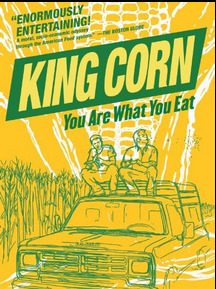
"King Corn" follows the journey of two friends, Ian Cheney and Curt Ellis, as they move to Iowa to grow an acre of corn and trace its journey through the American food system. The documentary reveals the prevalence of corn in the American diet and its implications for health and the environment.
The film highlights the extent to which corn is used in various food products, from sweeteners to animal feed, and examines the economic and policy factors that drive corn production. It features interviews with farmers, food industry experts, and policymakers who discuss the consequences of the industrial agriculture system.
"King Corn" raises questions about the sustainability of current agricultural practices and the health impacts of a diet heavily reliant on corn-based products. The documentary encourages viewers to consider the broader implications of their food choices and to support more sustainable and diversified farming practices.
Conclusion
These documentaries collectively provide a compelling look at the food industry's impact on health, the environment, and society.
They highlight the importance of sustainable farming, the dangers of processed and fast foods, and the need for greater transparency and regulation in the food system.
By raising awareness and encouraging critical thinking about food choices, these films inspire viewers to advocate for a healthier and more equitable food system.

